A council’s decision not to introduce a charging clean air zone (CAZ) has been justified after new figures show emissions continue to tumble.
Air quality data, published by Leeds City Council, reveals that levels of air pollution in the city have not returned to pre-pandemic levels and continue their long-term decline.
Changing travel behaviours, a faster than average transition to plug-in vehicles, and major highways improvements are all likely to have contributed to the city’s healthier air, the council says.
Six years ago, Leeds was one of several cities directed by the UK Government to introduce a charging CAZ to tackle illegal levels of pollution.
However, plans to introduce charges in Leeds were ultimately discontinued in 2020, after the majority of the city’s taxis, buses, coaches, HGVs, and private hire vehicles switched to less polluting models, leading to significant air quality improvements.
The new data covering 2021 provides the most recent overview of air quality in Leeds available, due to what the council described as a “rigorous” verification process. It says that 2022 data will be completed and published later this year.
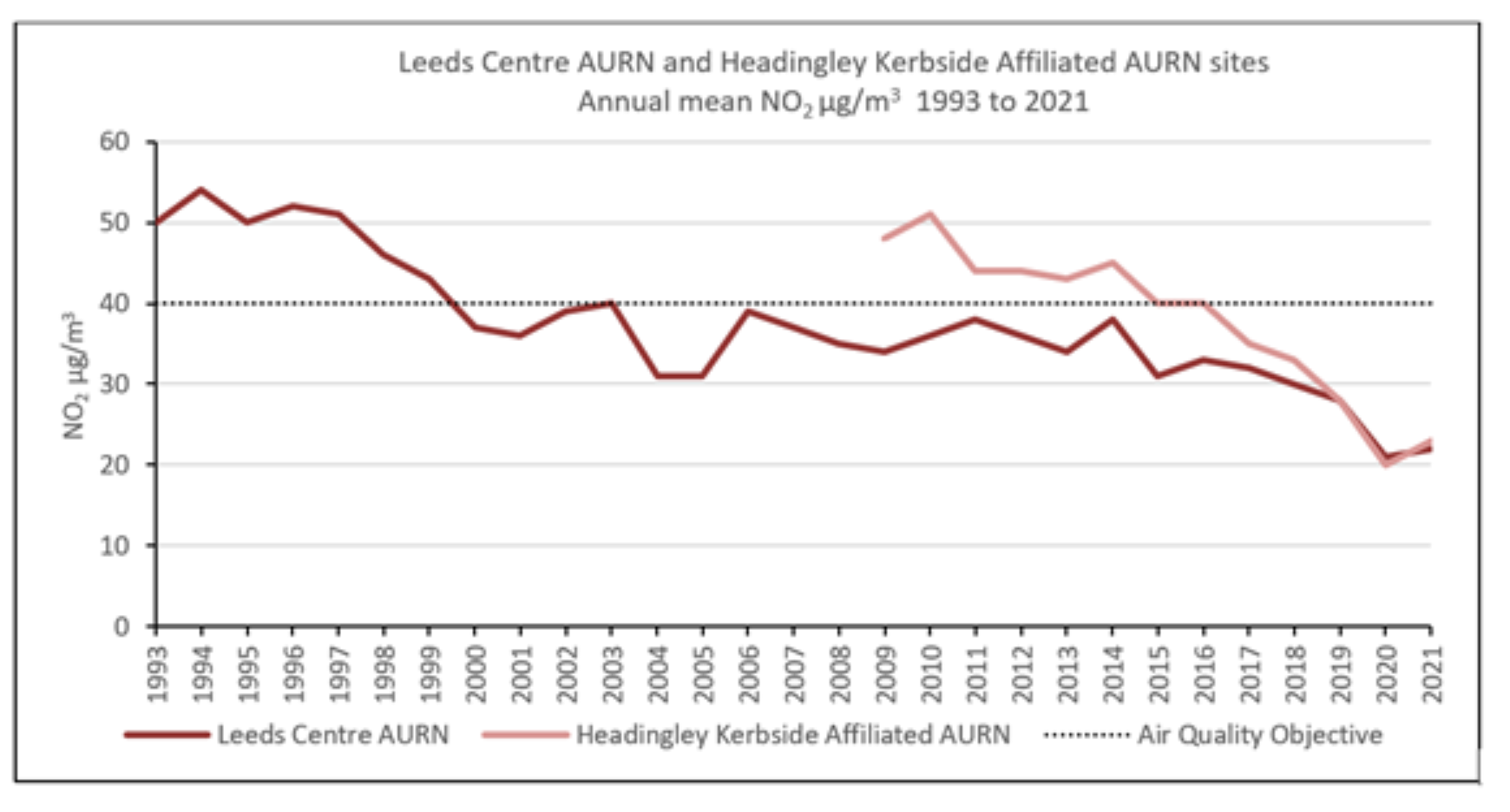 The long-term trend of nitrogen dioxide pollution at two monitoring locations: Leeds Centre and Headingley Kerbside
The long-term trend of nitrogen dioxide pollution at two monitoring locations: Leeds Centre and Headingley Kerbside
The council says that only a small number of air quality monitors in the city centre and near Kirkstall Road measured pollution levels (NO2) higher than permitted by national regulations in 2021 across the entire Leeds district.
All but one of these locations are places where people are unlikely to dwell, limiting the health risks.
Air quality at many of these locations is expected to improve following current or planned highways works.
Each of the city’s six designated Air Quality Management Areas (AQMAs)—neighbourhoods previously identified as being unlikely to meet clean air standards—are now compliant with national regulations and continue to improve.
Councillor Mohammed Rafique, Leeds City Council’s executive member with responsibility for climate and air quality, said: “It is hugely reassuring to see this new data, which confirms that Leeds’ air quality hasn’t returned to pre-pandemic levels and is continuing to get better.
“I am proud of the truly citywide effort that has made this progress possible.”
Over the past year, Leeds City Council has been running a number of schemes to tackle pollution, including encouraging local businesses to give electric bikes a go as part of the council’s ‘try-before-you-buy’ e-cargo bike loan scheme.






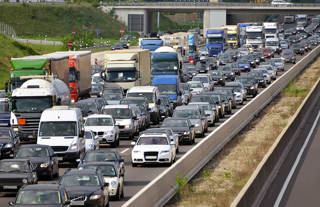

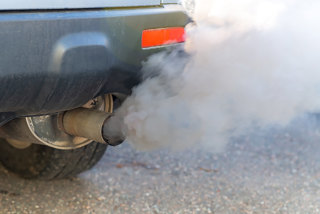
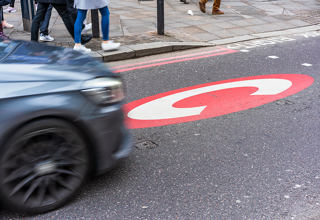
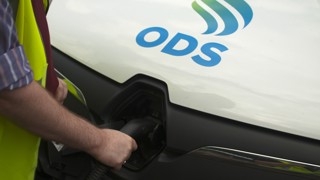











Login to comment
Comments
No comments have been made yet.